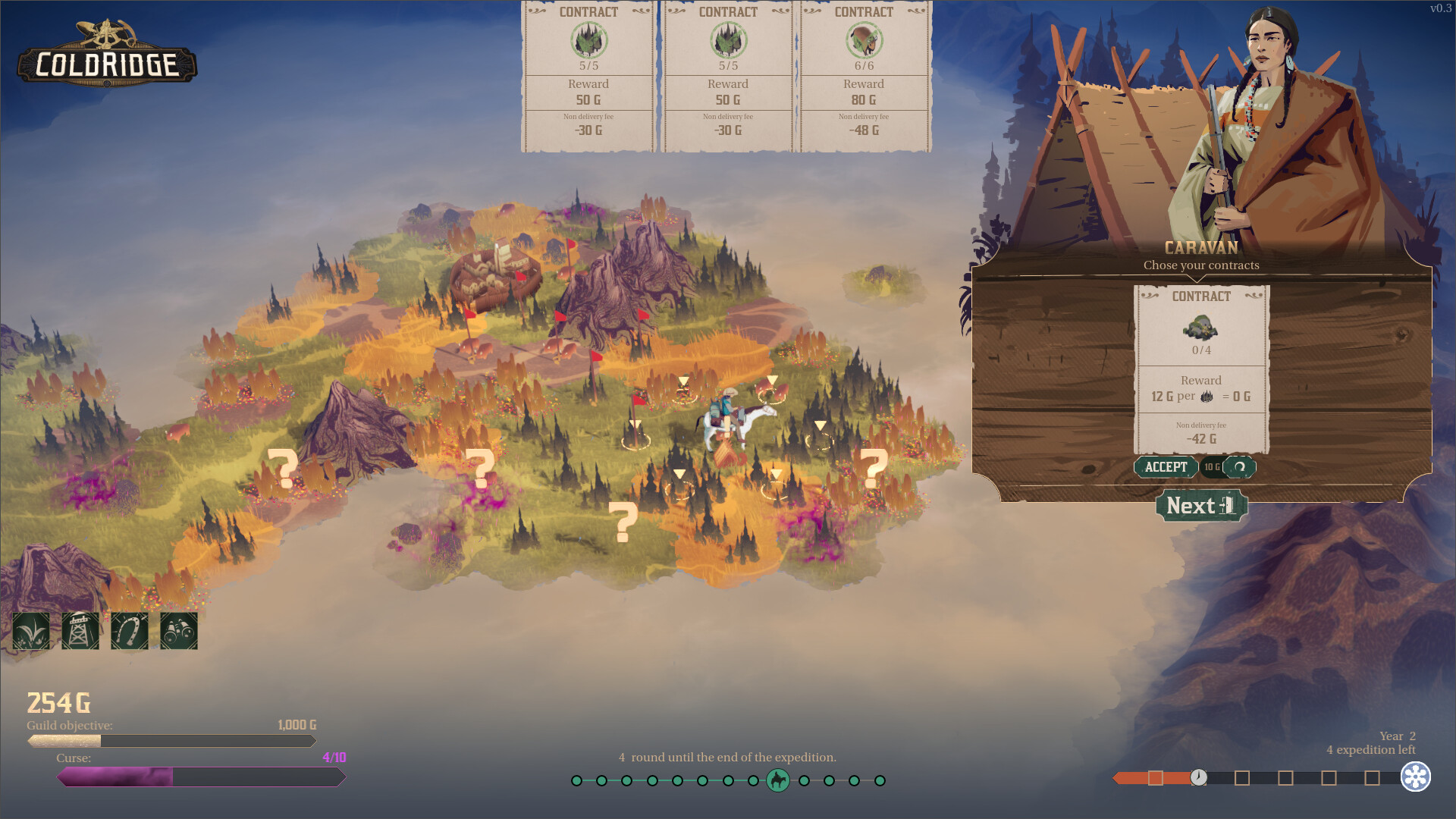I was alerted this week--on Linkedin no less, in case you were wondering how hard it is for a game to bust out of Steam's algorithm these days, even when the game is catered seemingly exclusively to you--to the release of Coldridge.
It's a turn-based exploration game. Not a turn-based combat game, not a tactics exercise, you don't even build anything, all you do here is push out into a foggy map, seeing what resources and dangers lie beyond, one hex at a time. I've seen others say it's simply the opening turns of Civilization broken out into their own game, and while that's mostly correct, there are a few points of difference.
It's got the same overall vibes as the beginning of Civ, sure. It's just a scout and the unknown. The thing is, without the rest of a 4X game to follow on from the exploration, the context here is entirely different. Instead of scoping out places to settle and having the freedom to take your time, Coldridge is a roguelite with an emphasis on scouring the frontier for resources.
Playing as said scout, you arrive at a mysterious and ruthless town, where you're given board in exchange for the completion of a series of contracts. To complete them you need to--yes, you guessed it--go explore the surrounding wilderness, discovering resources that the "Guild" offering you the contracts can seize and sell off.

Movement is everything here, as the map is only revealed and the resources only secured by moving the player onto a hex. Of course just moving a scout around a map onto some trees and bison would be too easy, so the catch comes in the form of Coldridge's sense of economy: You only get a certain number of expeditions to complete each year, and each expedition only lasts a handful of turns. So you've got to be really careful which contracts you take on and how strategically you make your moves.
It's a cruel, stingy game! Narratively the only thing keeping you alive is the fact you're allowed to stay inside the walls of Coldridge, and you're only allowed to stay so long as you keep completing the Guild's contacts, which become increasingly bloated and selfish over the course of the game, asking you to claim more and more on each run while facing increasing risk and danger. This makes Coldridge hard; there's one hell of a difficulty spike just moving from the first to second year, but once you learn Coldridge's own stringent rhythms, instead of just trying to play Civ over and over, you'll get the hang of it.
It's all very clean and direct and uncluttered. It's got great art, a snappy interface, some cool music, and it's just generally a very cool idea for a game and its setting. Coldridge has a solid roguelite structure too, which helps with the aforementioned difficulty; every run, even the most disastrous, can unlock new items and perks you can use next time around. The fact it's turn-based means you can take all the time in the world planning your moves while watching the gorgeous little bison and pretty little plains that litter the gorgeous map.
With such a sturdy bedrock, then, it's a shame that Coldridge felt the need to lean so heavily on its characters and dialogue, both of which are hammy and overwritten and which the game could have easily done without. A more interesting story than the story itself can be found in your actions out in the field; it's affecting to scout for bison in these beautiful, untouched fields, only to see industry come swooping in and strip the map of these "resources", then realise...it's all your fault.
Coldridge--which was developed by a pair of veteran Amplitude (Humankind, Endless Legend, etc) devs--is out now on Steam.


